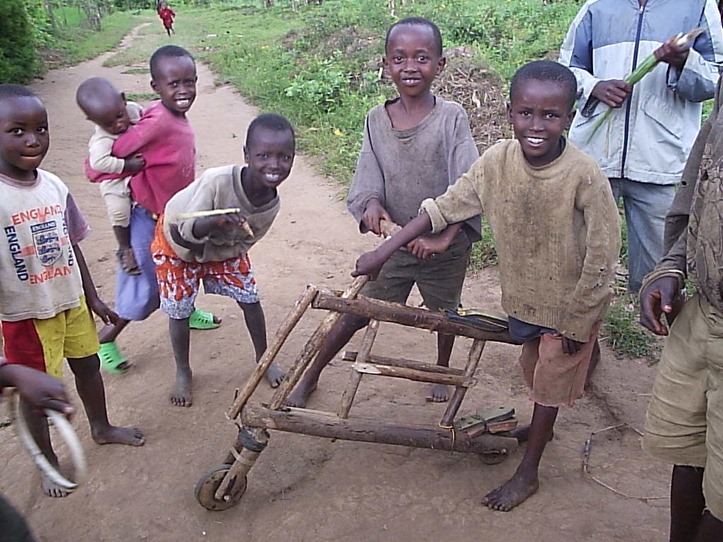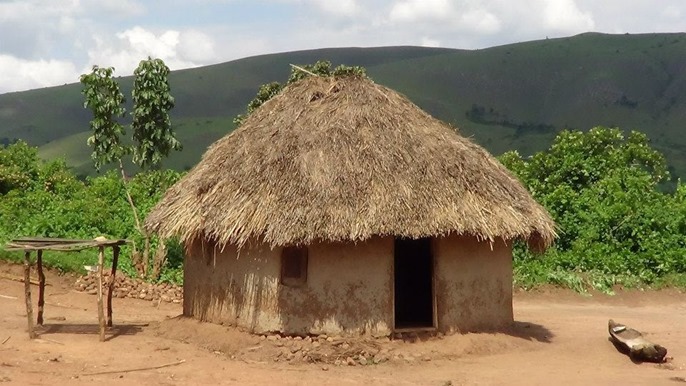Sven Longshanks
Daily Stormer
September 30, 2014

A new report in Ireland has shown that Blacks are 20 times more likely to end up in the family courts than other people living in Ireland. Of course, the compilers of the report are keen to blame this on anything but the Blacks themselves, so they try to imply that the reason for this is because of the terrible lives they led before invading Ireland and the dreadful housing facilities that awaited them when they got there.
Considering that they live in mud huts in their own country, just living somewhere with running water and a toilet should be like living in a palace for them. The real reason why their children end up in care is because their standards are not the same as our standards. It is not unknown for African mothers to leave their children to fend for themselves once they have weaned. They have also been known to have children just so that they could then sell them into slavery. Infant rape is such a common occurrence in Africa that they even make school plays about it.
These creatures are not our responsibility, and importing them into our countries is insane. We are wasting all our precious resources trying to take care of a people who have never contributed anything to our nations, all they are capable of bringing us is war, pestilence and poverty and they do this wherever they go. By treating them as equals to our own children, we use up all our precious resources on them, instead of us. They are like human cuckoos, constantly draining the energy from their host and constantly demanding more.
They will never be anything other than primitive savages and the only way they know how to repay our kindness, is by bringing our societies down to their primitive level.

The living conditions that people are forced to live in are having a knock on effect, with one stark impact being seen in the family court in relation to child welfare.
The interim report on the Child Law Reporting Project finds that there is a relatively high proportion of African families involved in child care proceedings – 11.4% of all respondents, all in Dublin.
The report finds that this is “totally disproportionate to their presence in the population as a whole” stating that in the last Census in 2011, there were 17,642 Nigerians and 4,872 South Africans living in Ireland. Eight other African countries had less than 1,000 and more than 200 of their nationals living here.
Assuming an average of 500 per country, this would account for approximately another 4,000 people, giving a total figure for Africans in Ireland in the region of 22,524.This is approximately half of one per cent of the population.Thus, according to this data, African families are 20 times more likely to find themselves in the child care courts than other members of Irish society.
The largest single reason cited for African children becoming the subject of care proceedings was “abuse”.
While the report says that there are “no easy explanations” for the figures, when the reasons for a care order being sought was cross-referenced with ethnic background, abuse, parental disability (which was generally to be mental illness or intellectual disability) and parental absence emerged as the main reasons for African children coming into care.
The mental health supports for those in direct provision is something that has been raised by groups such as Nasc, the Irish Immigrant Support Centre.
Jennifer Dewan from Nasc said that while no blanket statement can be made to say that mental health issues of people in direct provision are solely the cause for the figures, she said that the living conditions do exasperate problems for families.
“Many people in direct provision already have serious problems to work through, with many having seen atrocious atrocities in their home countries and been tortured themselves. Add children into the mix and live in a centre for such a long period of time it is no surprise the mental health issues are arising,” said Dewan, a view that was also raised in the FLAC Report on Direct Provision, One Size Doesn’t Fit All in March 2010.

